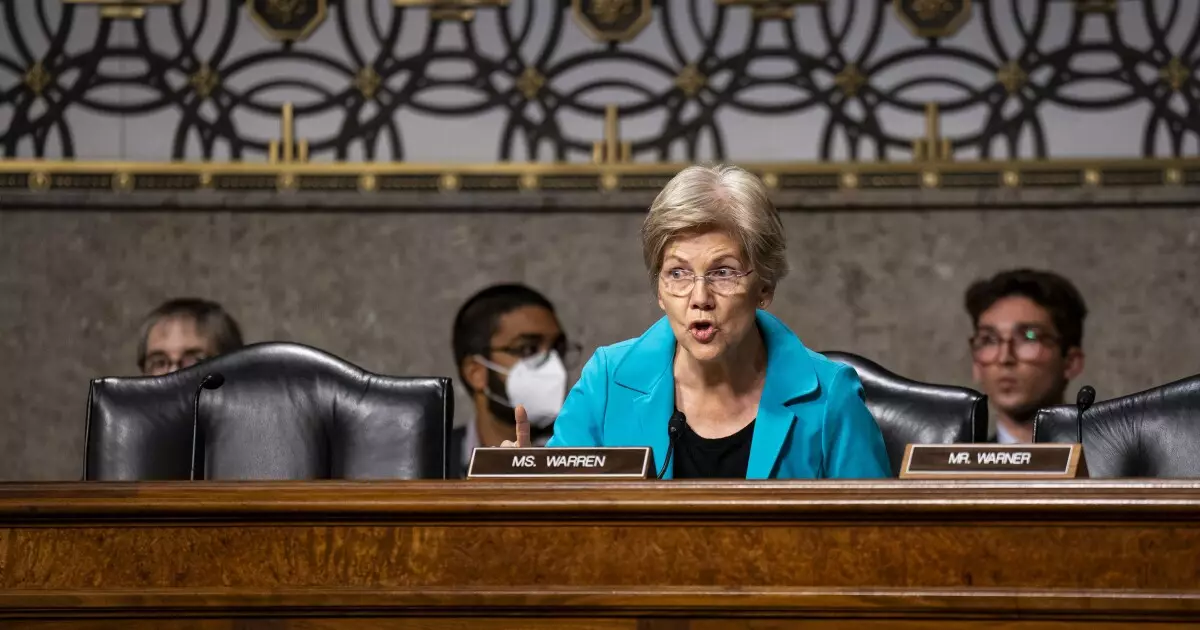As the Senate Banking Committee prepares for a pivotal year in tax policy discussions, the anticipation of vigorous debate surrounding the 2017 Tax Cuts and Jobs Act (TCJA) looms large. Incoming Ranking Member, Sen. Elizabeth Warren, D-Mass., has set the stage by labeling the TCJA a “scam of giant proportions.” Her remarks during a recent subcommittee hearing underscore not only her critical stance on past tax reforms but also her determination to challenge any Republican efforts to extend or renew provisions of the TCJA, which may further financially disadvantage working-class Americans.
This debate is not merely about tax numbers; it represents a broader ideological battle over wealth distribution in America. The emphasis is placed on corporate tax breaks and how they disproportionately benefit wealthy individuals, particularly those linked to former President Trump. Warren’s statements highlight a growing concern among Democrats that the Republican agenda is primarily driven to enrich their constituency—namely, the wealthiest segment of society—at the expense of everyday Americans.
The TCJA, introduced under Trump’s administration, was touted as a transformative piece of legislation aimed at spurring economic growth through substantial tax cuts across various sectors. However, Warren’s assertion of its failure to deliver on promised economic benefits serves as a critical lens through which the consequences of such policies can be examined. Critics point out that while corporations and high-income earners enjoyed the lion’s share of tax cuts, middle and lower-income families saw minimal, if any, benefits.
Warren’s warnings about a potential “sequel” to the TCJA are both pointed and timely, as they emphasize the urgency of addressing tax inequities. The discussions surrounding the TCJA’s impact form a narrative that shapes public opinion and political strategy. The long-term economic implications of extending its provisions could result in a massive deficit increase estimated at $4.5 trillion over the next decade, a concern echoed by the Congressional Budget Office and put into greater relief by Warren’s observations about the looming deficit.
In juxtaposition to Warren’s perspective, there emerges the Republican agenda, which aims to extend the TCJA provisions without increasing offsets for loss in revenue. Sen. Mike Crapo, R-Idaho, has proposed methods that Warren critiques as “magic math,” questioning the fiscal responsibility of proposals that appear to disregard the need to balance the budget. It raises significant questions: Is it sustainable to pursue tax cuts without addressing their broader financial implications? Will Americans really be willing to shoulder the burden of these extensions?
This narrative becomes even more complex when analyzing the possible repercussions of extending TCJA provisions on municipal bonds, which hold significant value for local governments and communities. Should legislators act on their plans to reduce tax exemptions linked to municipal bonds, the impact could reverberate through local budgets and services, further marginalizing already vulnerable populations.
As we anticipate the Senate Banking Committee’s forthcoming engagements, the focus will increasingly be on the values that guide tax policy reform. Warren’s rallying cry for “tax fairness” resonates deeply as citizens look for transparency and accountability from their legislators. The question emerges for every senator: Will their decisions align with the interests of their constituents, or will they replicate the patterns of privilege established by the TCJA?
To foster a just and equitable tax system, lawmakers must prioritize policies that genuinely promote economic equity rather than perpetuating wealth concentration among the already affluent. The discussion around tax policy is more than a legislative exercise; it is a defining moment for American democracy, where choices made will have profound implications for socio-economic dynamics in the country for years to come. Engaging in this debate with integrity and foresight will ultimately determine the legacy of tax policy in America, highlighting the critical need for legislators to be staunch advocates for the constituents they serve.

